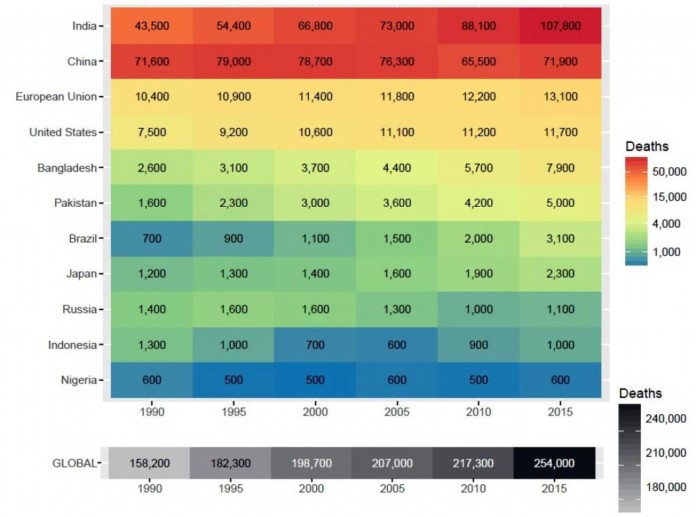This news didn’t come as a shock. India and China officially account for more than half of the world’s premature deaths due to air pollution. Noting that India’s lives lost to the tiny particulate matter (PM) is “approaching” China’s numbers, the ‘State of Global Air 2017’ report said that among the 10 most populous countries and the European Union (EU), Bangladesh and India have the highest exposure to PM2.5, the “steepest” rise since 2010. In 2015, India and China lost 1.1 million people due to respiratory disorders because of air pollution.
How can India bring this down when its towns and cities are getting built only now? Better municipal planning and enforcement (governance) of laws is the answer. But then, that’s the crux of the problem. The larger problem is the civil society’s ‘acceptance’ of the prevailing condition and not demanding basic governance. Expecting the governments to take a leap (not merely take a few steps) to solve particulate (dust) pollution may be asking for too much.
Some of the easier measures to reduce dust include – forcing the construction industry to follow guidelines; planting thousands of trees in and around towns, getting the civil society involved in keeping their surroundings dust free and offering incentives for disbanding older vehicles.
Smart cities, and perhaps smart towns, need to include air pollution control measures as part of planning and implementation. Incentives for recycling water and using it to grow grass around plants can help significantly in reducing dust. At a time when most cities and towns in India don’t even have a functioning waste disposal mechanism, it may be asking for too much. All these can happen only when citizens start demanding them as their right, not as seeking favor.
The good news is, as part of commitment to December 2015 Paris Summit, India has promised to plant millions of trees to reduce its climate impact. If this is directed smartly in and around hundreds of towns in India, it may result in fewer deaths in the coming years.
Also, the government is working on easier access to gas for cooking for the poor could also bring down the incidence of deaths due to pollution.










